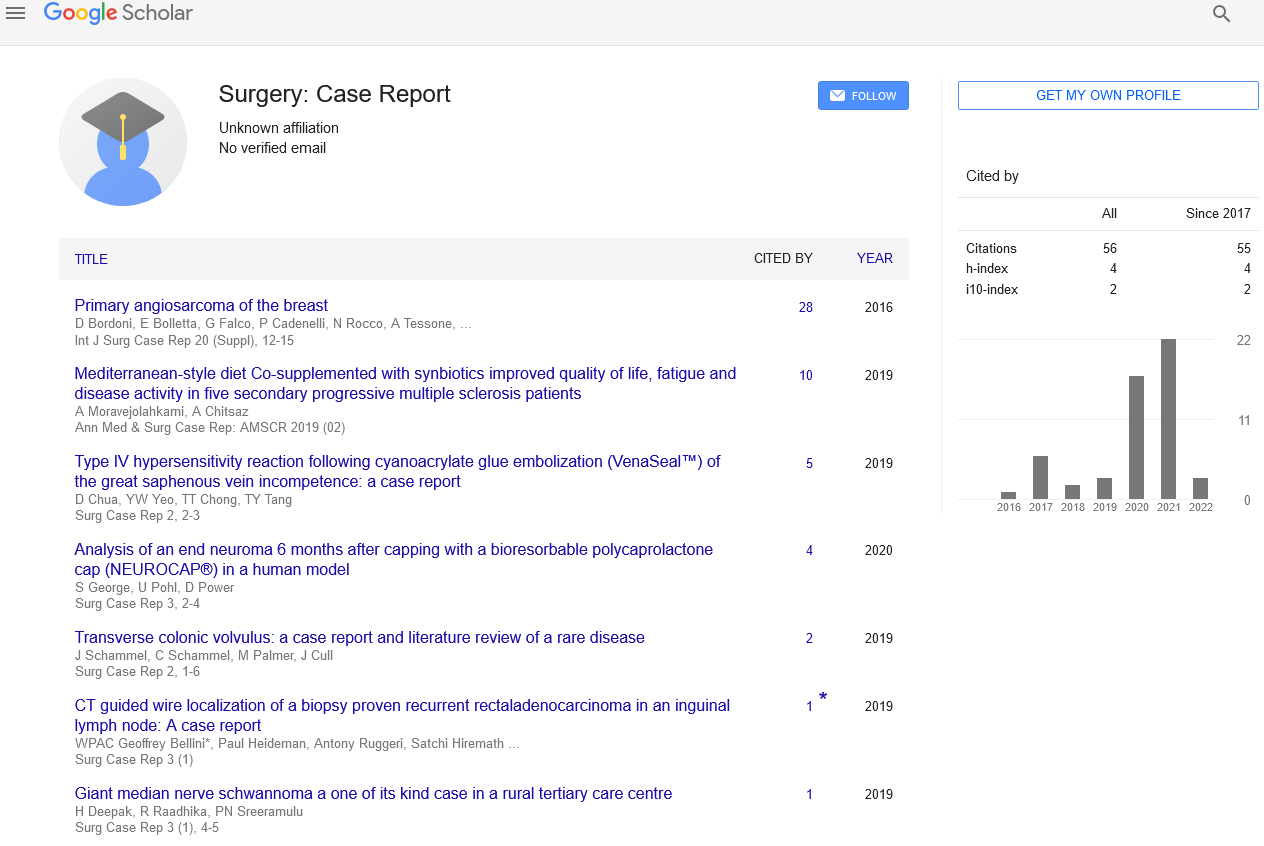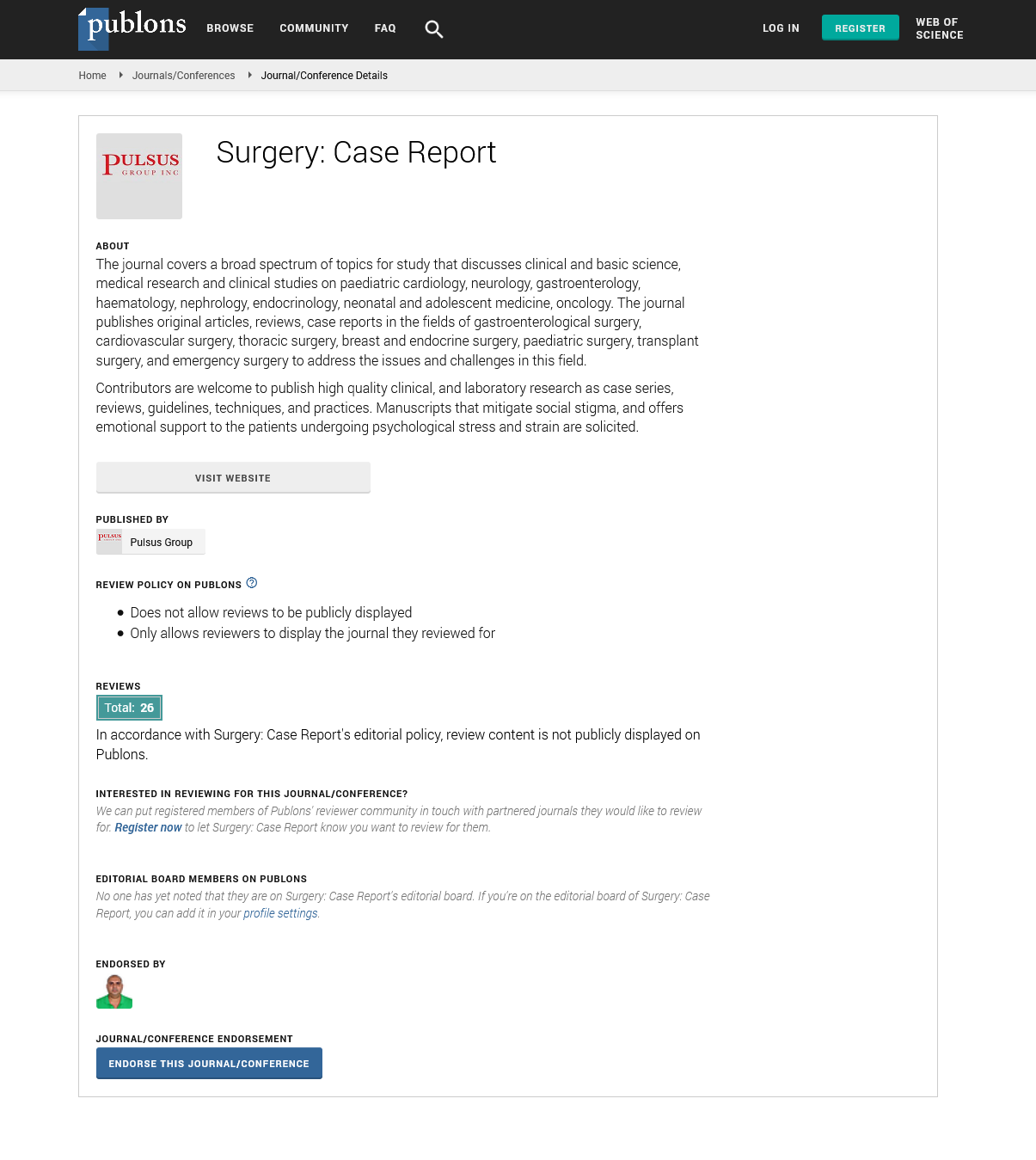social media a fresh platform for futuristic surgical learning overview
Received: 07-Sep-2021 Accepted Date: Sep 21, 2021; Published: 28-Sep-2021
Citation: Badigeru R. Social media a fresh platform for futuristic surgical learning: Overview. Surg Case Rep. 2021; 5(5):1-1.
This open-access article is distributed under the terms of the Creative Commons Attribution Non-Commercial License (CC BY-NC) (http://creativecommons.org/licenses/by-nc/4.0/), which permits reuse, distribution and reproduction of the article, provided that the original work is properly cited and the reuse is restricted to noncommercial purposes. For commercial reuse, contact reprints@pulsus.com
Commentary
Surgical education has changed rapidly in recent years; the times of sitting in a packed amphitheatre and flipping through texts are long passed. Videobased teaching and digital educational programmes were used throughout the changeover period, and contemporary technology platforms are now an important component of surgical training. Frequently planned webinars and worldwide broadcasts from a variety of prominent organizations, schools of surgeons and commissions on cancer, as well as the advancements in surgery stream, provide an almost constant stream of information. Nevertheless, due to scheduling and previous preparation, these impressive educational opportunities are restricted. The goal of social media sites is that knowledge will be disseminated instantly and spontaneously. Over recent times, social media has emerged as a highly significant means of not just distributing but also gathering data for biomedical study. Several prestigious, affluent, and dedicated publications and organizations are advancing operations in the area of social media at a quick pace. Different publications are devoted to bringing knowledge of these publications to everyone through any means that might assist in academic purposes, with the help of respective editors-in-chief, guest editors, editorial committee, and managing editors. Several publications too have formed a worldwide social media expert panel committee to this purpose. Whereas the scientists work in a variety of geographical areas such as Asia, Africa, the Mediterranean, Europe, the United Arab Emirates, the United Kingdom, and the United States, people all have one thing in common, they all seem to be popular on social networks and have co - operated to advance surgeries learning thru social networks. Owing to such initiatives, globally we have been introduced towards the outstanding projects published in these publications through social media channels for surgery. It would be with joy that such social media editorial staffs is presented to the future generation of academics who might administer such networks on Instagram, Twitter, Facebook, LinkedIn, and YouTube, and also engage on webpage and application development. Such talented individuals will conduct interviews with the writers so that users interested in learning more about publications may listen and view their perspectives on webinars and YouTube clips. Journal clubs on Facebook and Twitter may delve deeper into content. The surgical sector may expect to develop in the years owing to such professionals and their dedication to their authors and readers. This commitment to social media shall undoubtedly become a valuable resource for any and all physicians across the globe.






